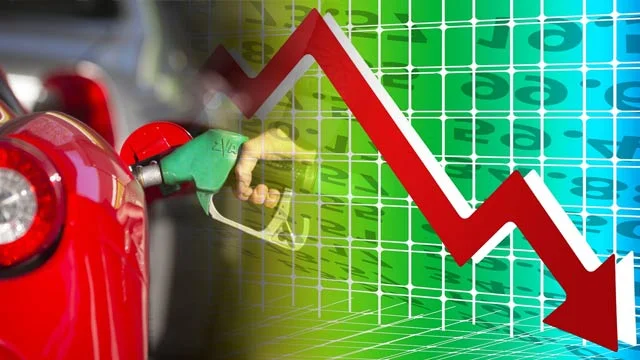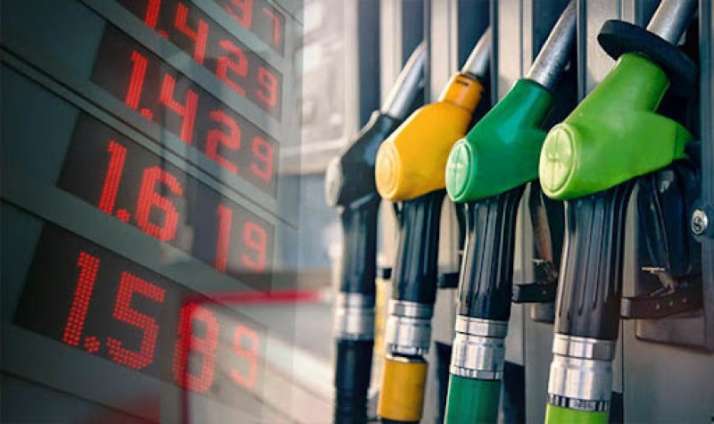Consumers of petroleum products in Ghana will soon enjoy some relief at the pumps as fuel prices are expected to drop starting Friday, May 16, 2025.
The Chamber of Oil Marketing Companies (COMAC) has confirmed that the impending reduction is primarily due to the Ghanaian cedi’s recent strong performance against major currencies and falling prices of finished petroleum products on the global market.
Speaking on the development, the Chief Executive of COMAC, Dr. Riverson Oppong, explained that a stable foreign exchange rate significantly influences local petroleum product prices.
“One of the biggest components in the price derivation of crude oil product prices in Ghana has to do with the forex.”
Dr. Riverson Oppong, Chief Executive of COMAC
He further highlighted that the depreciation of the U.S. dollar, coupled with declining crude oil prices worldwide, has made it possible for prices to drop.

“As we speak now, the benchmark prices are falling, and the U.S. dollar is weakening.
“That’s why you’re seeing petroleum product prices coming down—from 15% to 13% today on average.”
Dr. Riverson Oppong, Chief Executive of COMAC
The CEO expressed optimism that the trend may continue, providing further relief to both households and businesses dependent on fuel.
“Indeed, we expect this to continue. As long as these two components — the exchange rate and international prices — continue their downward trajectory, consumers should enjoy more price reductions.”
Dr. Riverson Oppong, Chief Executive of COMAC
Cedi’s Resurgence

The Ghana cedi has been enjoying a bullish run in recent weeks, cementing its position as the strongest currency among a group of 15 Sub-Saharan African currencies.
According to the latest market data, the cedi gained 6.25% against the U.S. dollar on the retail market last week, bringing its year-to-date appreciation to 16.29%.
The local currency is trading at GH¢13.60 to the dollar in the retail market and GH¢12.60 on the interbank market. Analysts attribute this rally to increased market liquidity and positive macroeconomic indicators.
Additionally, the market remained highly liquid, following an aggregate market supply of $378.6 million.
The cedi also strengthened against other major currencies, rising 7.61% week-on-week against the British pound and 5.81% against the euro. “The market remained liquid following an aggregate market supply of US$378.6 million,” analysts at COMAC noted.
The cedi’s good run has been attributed to improved market sentiments, strong fiscal policy measures, and an upgraded credit rating.
Recently, S&P Global Ratings revised Ghana’s long- and short-term foreign currency sovereign credit ratings upwards, from ‘Selective Default’ to ‘CCC+/C’, citing Ghana’s economic growth, ongoing fiscal reforms, and improved external financial stability.

The agency also affirmed the country’s debt at ‘CCC+’, maintaining stable outlooks on both foreign and local currency ratings.
Analysts believe that these upgrades will contribute to maintaining the cedi’s stability and bolstering investor confidence.
“This is the kind of synergy we need — strong currency performance, favorable global markets, and sound domestic policy — all working together to benefit the Ghanaian consumer.”
Dr. Riverson Oppong, Chief Executive of COMAC
With the cedi’s resilience and declining benchmark crude oil prices, fuel consumers anticipate continued reductions in petroleum product prices.
Market watchers foresee further price cuts in the coming weeks should economic indicators remain favorable.
Consumers across Ghana will be watching closely as fuel prices adjust on Friday. For now, the outlook appears favorable, offering potential relief in transportation and logistics costs, and easing inflationary pressures — a welcome development for both households and businesses.
The latest developments indicate a promising outlook for petroleum product pricing, offering Ghanaians much-needed financial respite as economic conditions improve.
READ ALSO: Wencai Zhang Calls on Finance Minister, Pledges Stronger World Bank-Ghana Partnership



















